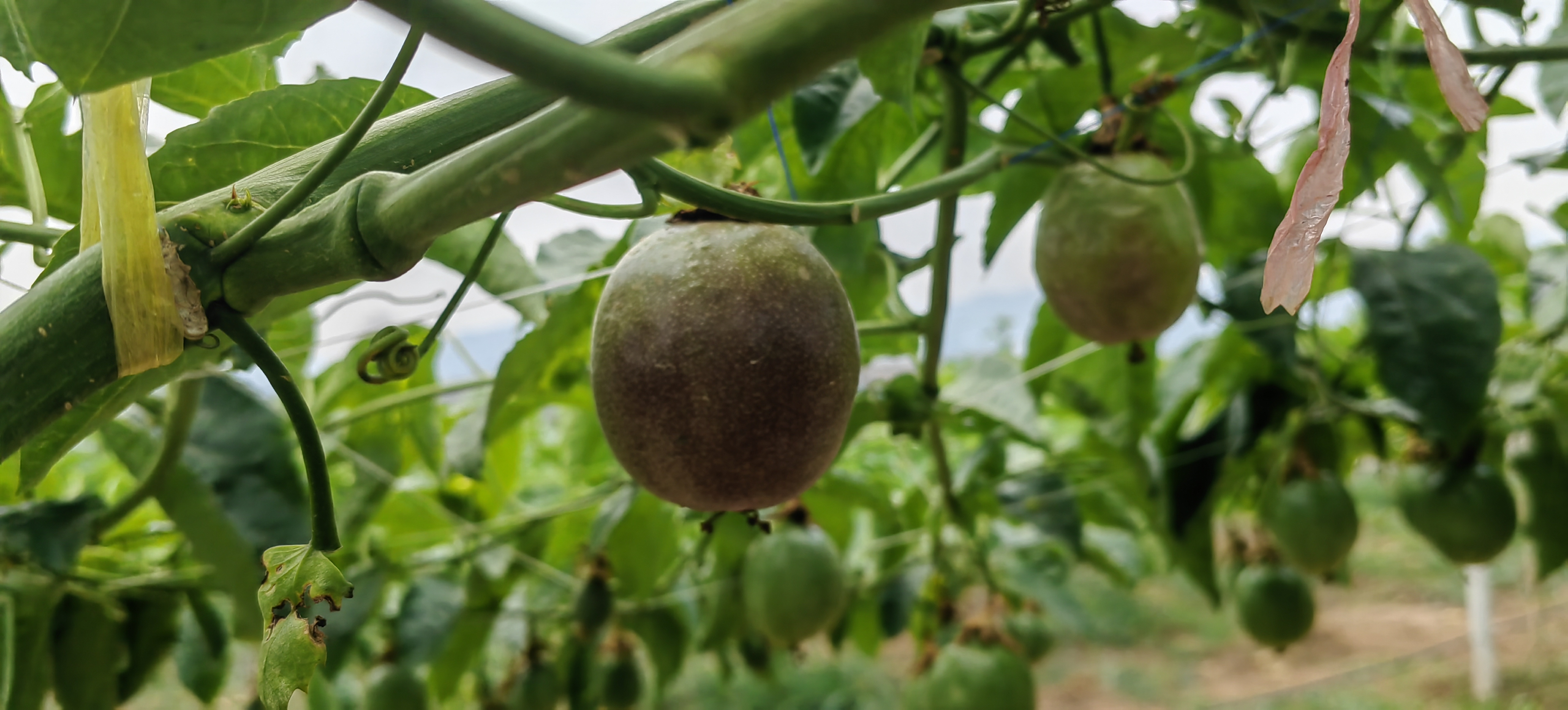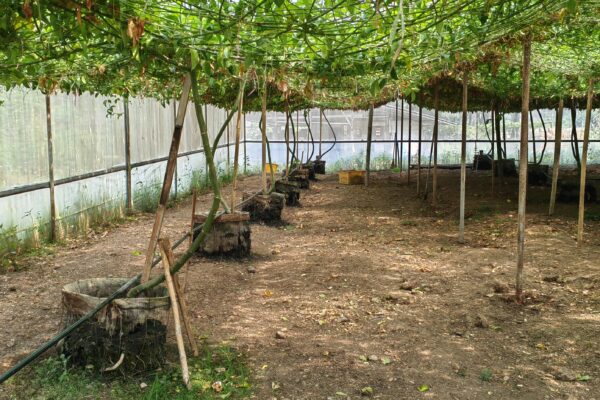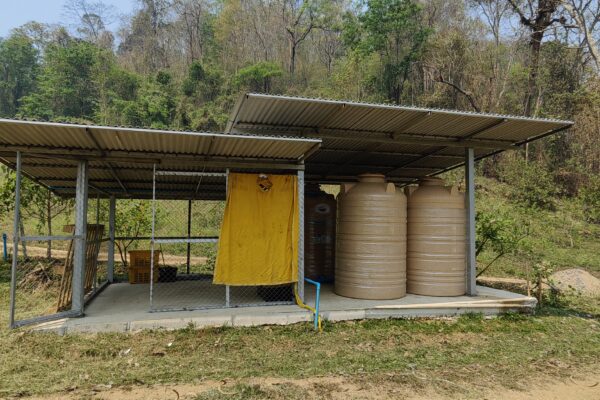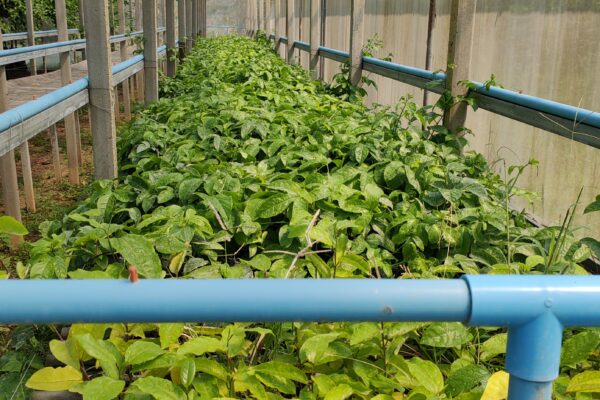Fairtrade Fruit and Vegetables Producer Group Cooperative faced the issues of poor product quality that fell below the exportation standards due to virus-spreading insects. Co-funded by Fairtrade Germany, the organization and traders, the Climate change project “Renewable Energy Nursery for Passion Fruit Seedling Production Project” was executed to develop a renewable energy nursery and embarked on a renewable energy initiative. The solar energy is harnessed to be used for irrigation, pump, fertilization and nursery lighting where the reserve power is stored in batteries for charging agricultural tools. The Project will benefit 10 families while providing opportunities for individuals who are interested in smart farming and renewable energy through field study at the central farm.
The Renewable Energy Nursery for Passion Fruit Seedling Production Project had several key objectives.
- It aimed to reduce greenhouse gas emissions into the atmosphere by implementing a renewable solar energy system for the central nursery.
- It aimed to reduce dependencies on government electricity that is produced from coal, gas and fuel.
- the project sought to provide a subsidiary service to cooperative members by offering disease-free passion fruit seedlings. By reducing production costs and improving the quality of their crops, the farmers could enhance their income.
- It aimed to disseminate knowledge on renewable energy technology for agricultural cultivation and raise awareness about climate change. By educating the members, the project intended to empower individuals to adopt alternative energy technologies and contribute to mitigating the impact of climate change.
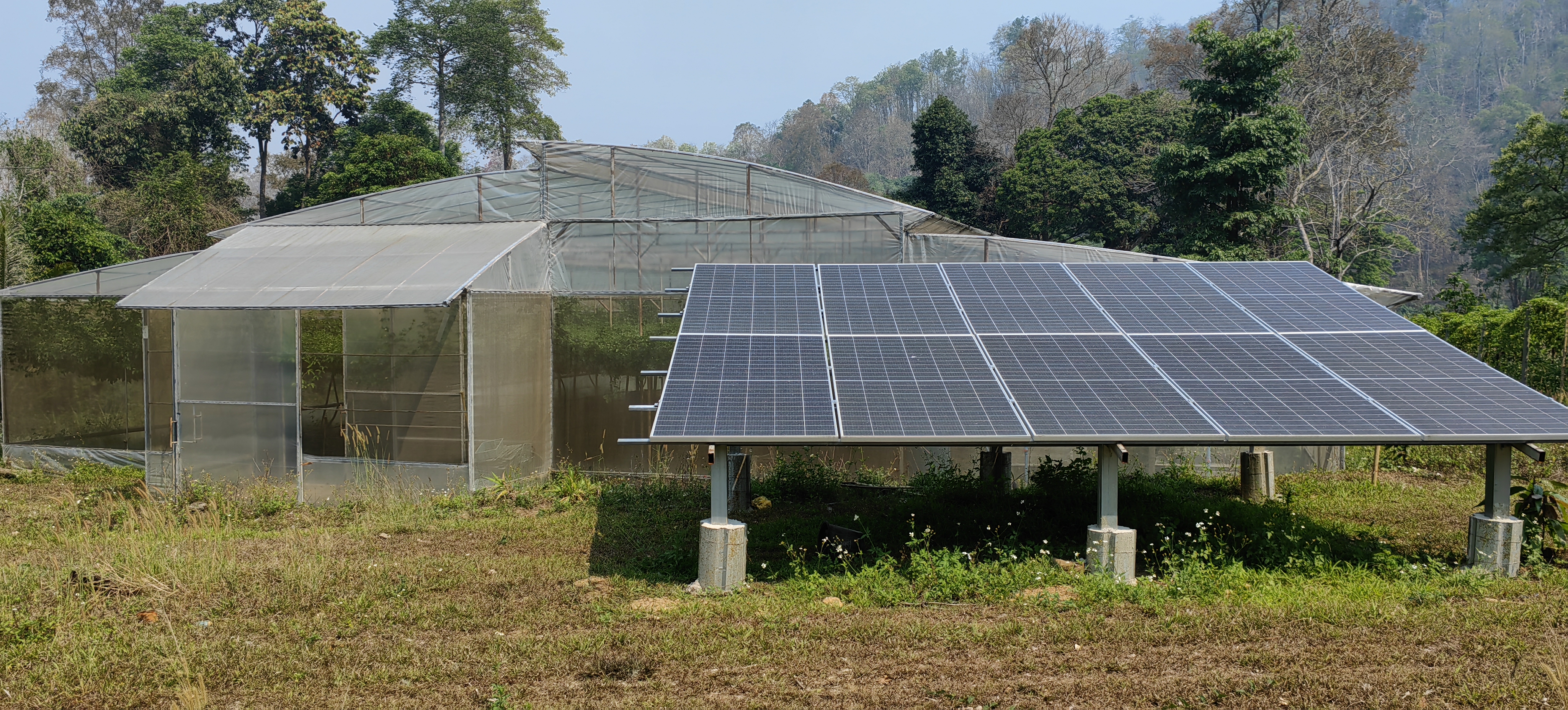
As part of this project, the cooperative procured their virus-resistant passionfruit seedlings, specifically the Thai Nung 1 variety sourced from Taiwan from their customers. These valuable seedlings were then carefully nurtured in the central nursery before being distributed to their cooperative members. The plan involved nurturing and cultivating these high-quality seedlings within the nursery to be used as grafting stock in the future. Hence, the producer organization would be producing their own Thai Nung 1 seedling while distributing them during the upcoming crops of their members for free of charge.
Initially, price comparison of equipment available in the market was conducted to ensure cost-effectiveness. Subsequently, a bidding process was undertaken to purchase the required equipment at a competitive price. The cooperative procured the equipment and proceeded with the construction of the renewable solar energy system according to the project plan. Throughout the implementation process, expenses were meticulously documented and summarized to provide clarity to cooperative members. Regular reporting kept the members informed about the progress and financial aspects of the project.
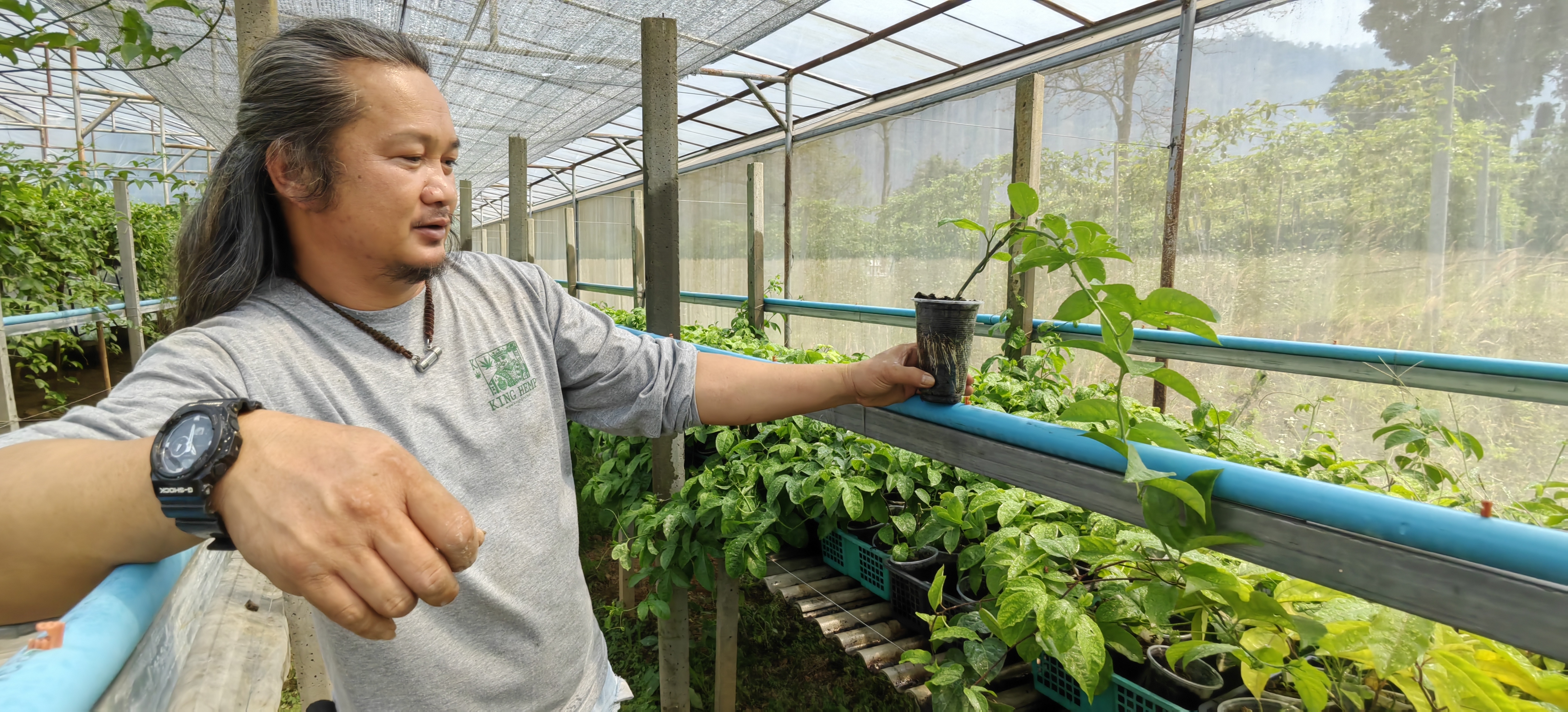
The impact of the Renewable Energy Nursery for Passion Fruit Seedling Production Project can be summarized as follows:
- Enhanced Passion Fruit Production: By providing disease-free passion fruit seedlings to cooperative members, the project significantly improved the quality of their crops. This led to increased productivity, reduced production costs, and overall increase of farmers’ income.
- Reduction in Greenhouse Gas Emissions: The project successfully reduced greenhouse gas emissions by implementing a renewable solar energy system. By relying less on government electricity from coal, gas, and fuel, the cooperative minimised its carbon footprint and contributed to global climate change mitigation efforts.
- Knowledge Dissemination and Awareness: The project played a vital role in disseminating knowledge on renewable energy technology and climate change mitigation strategies. Cooperative members and other interested farmers were empowered with information about alternative energy solutions and sustainable farming practices. This awareness helped create a culture of environmental consciousness and encouraged the adoption of renewable energy technologies in agricultural activities.
- Compliance with Fairtrade Standards: The improved passion fruit production resulting from the project enabled the cooperative to meet the quality standards required for Fairtrade certification. This compliance ensured that customers receive high-quality produce that met consumer expectations and aligned with Fairtrade principles.
- Field Study Opportunities: The project created opportunities for individuals interested in smart farming and renewable energy to engage in field studies at the central farm. By observing the implementation of renewable energy systems and sustainable agricultural practices, participants could gain valuable insights and knowledge applicable to their own farming endeavours.
Through successfully implementing the Renewable Energy Nursery for Passion Fruit Seedling Production Project, the Fairtrade Fruit and Vegetables Producer Group Cooperative took significant steps towards mitigating climate change and improving passion fruit production. By harnessing solar energy, reducing greenhouse gas emissions, and providing disease-free seedlings, the project not only benefited the cooperative members but also created opportunities for field studies and knowledge exchange among individuals interested in smart farming and renewable energy.
